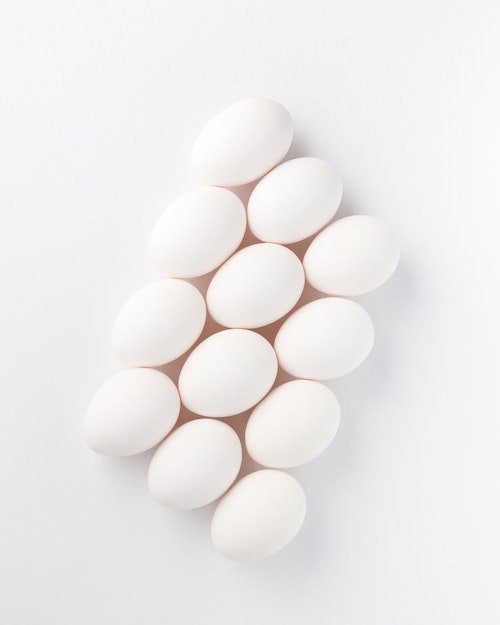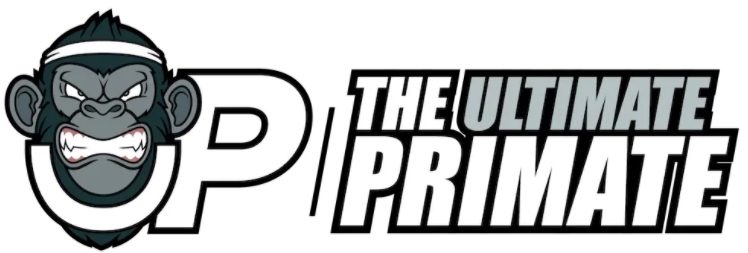 As the world of fitness grows larger and larger with more and more people chipping in, a lot of trends have arisen.
As the world of fitness grows larger and larger with more and more people chipping in, a lot of trends have arisen.
Different diets, juice cleanses, and organic foods that are said to increase metabolism or promote weight loss have been advertised by different brands and celebrities.
The question is: are protein shakes part of this fad culture that we have now? Is it another ridiculous way of encouraging people to buy a product with no real known results?
Spoiler alert: the answer is no, but we’ll get to that later.
When I was training heavily for my marathon, incorporating some strength training here and there, I had been more active than I ever was in my life. Despite this, my food intake did not keep up as much as it should have.
When I started learning more and more about the food you need and the nutrients that could boost your performance, that’s when I learned more about the importance of protein, especially for endurance runners like me. In this article, I’ll be talking about natural sources of protein and how protein shakes can enhance and supplement these.
Protein - Everything You Need To Know
What, exactly, is protein?
Scientifically speaking, proteins are a chain of amino acids, which are the building blocks of a cell. This means that proteins pave the way for the growth, regeneration, and maintenance of cells. This is why protein is usually associated with muscle gain. Proteins don’t only make up our muscles, though; tendons, organs, and even smaller particles such as hormones are mainly proteins!
Protein is the main building block of our body, as we are 20 percent protein by weight. Advertisements always use the term “essential amino acids”, but really, what are these? These are simply the 9 amino acids that our body cannot produce by itself. It comes from our food intake.
What does protein do for me?
If you’re into bodybuilding, or if you simply want to reach the required amount in order to enhance your performance in the gym, protein might be the macronutrient that you’d want to consider the most in your diet. This is because muscles are mainly made of protein, so to gain more muscle, you must take in more protein than you expend (with bodybuilding exercises, too!).
Not only will it actually give you more muscle, but it will also repair the muscles you already have that have been under the physical stress of your workout. It also can promote weight loss, especially since protein consumption makes you feel fuller throughout the day.
According to Healthline, consuming around 25-30% of your daily calories will increase your metabolism by 80-100 calories per day. That means you’ll be burning more calories and having fewer urges to eat. Adding more protein in addition to your weight loss diet makes more sustainable in the long run.
How much protein do I need?
Studies determining how much protein an average person needs varies. The US Food and Nutrition Board suggests 0.8g of protein per kilogram of bodyweight for the average person. A range that these studies give is around 0.7-1 gram per pound of bodyweight, according to Healthline.
However, these numbers go up as you increase your activity level. This also decreases if you have more body fat than average. That’s why there are a lot of macronutrient calculators online that will take into consideration your daily activity level, your estimated body fat percentage, among other factors.
You can use the If It Fits Your Macros calculator to estimate how much protein, fat, carbohydrates, and daily calories you need.
Where does protein come from?
You can mainly get your protein from both animal and vegetable sources. Animal sources, such as meat, milk, and eggs, are great sources of protein as they provide all essential amino acids. This is why they are called “complete proteins”.
Vegetable sources, on the other hand, lack some amino acids. The deficiency in amino acids is very particular to each vegetable, though, so having a variety of vegetables on your plate can actually give you all the amino acids you need.
However, you can’t eat loads of protein in a single sitting. You have to space this throughout your day in order to accommodate your body and how it digests these high amounts of protein. Spacing your meals throughout the day also makes sure that you are constantly feeding your muscles more protein, helping them heal and regenerate.
What are protein shakes?
Protein shakes are simple protein supplements. They are meant to be taken with your meals to help you reach your suggested daily protein intake.
Although they are advertised almost like meal replacements, they are only meant to supplement your meals. These are simply concentrated sources of protein, meaning that the protein that you would get in your diet is isolated into a powder.
Protein shakes take the form of the following:
- Protein Concentrates
Protein is extracted from food using heat and acid or enzymes. This isn’t as concentrated as other forms; it has around 20 to 40 percent of fats and carbohydrates, with the rest as protein. This might actually be beneficial, as it mimics how food naturally is: a mix of nutrients consumed together. - Protein Isolates
This takes the protein extraction process a step further as it filters the carbs and fat out to get a powder that is around 90 to 95 percent protein. This might be great for you if you want to isolate your protein only without taking in extra carbs or fats, especially for those who are keen on bodybuilding. - Protein Hydrolysates
Another round of heating with acid and enzymes breaks the bonds to that the protein is absorbed more quickly by your muscles. This raises insulin levels, helping with muscle growth especially after exercise.
Just like any product, you have to decide which is best for you and your fitness goals.
Popular Types of Protein Shakes
When shopping for protein shakes, you’ll see different protein shakes with different labels. What do they mean, anyway?
Whey Protein is the most common protein shake in my opinion. Whey comes from milk, specifically the liquid that is left behind while curds form in cheesemaking. This contains lactose, so take note of that. However, when you get its protein isolates, you’ll find very little lactose.
Whey protein, unlike other protein powders, is easy to mix and digests quickly. This quickly gives your muscles the nutrients it needs to promote muscle growth.
Casein Protein is also found in milk. Unlike whey, casein is much more slowly digested, which also has its benefits. This helps your body have a gradual and constant source of protein throughout the day as your body tries to digest it. It’s almost like spacing your eating, as mentioned earlier.
Benefits of Protein Shakes
Although protein shakes are not in any way meal replacements, they can trump your traditional meals in some factors.
The convenience of being able to drink protein shakes anywhere, any time is a great way to encourage yourself to reach your recommended daily protein intake. This is especially great for those who do not have time to prepare meals with higher protein content.
Protein powders also usually come in different kinds of flavors. This brings some sort of luxury to it, making it almost like a treat with little consequences! Of course, that is only true if you consume protein in a reasonable amount.
If you’re also looking for a quick way to help your muscles repair themselves after a hard workout, protein shakes are definitely a great way to do so.
This has definitely saved me a lot of times, especially when I was working an office job and training at the same time. It was all very hectic, and I knew I needed to help my muscles regain their strength. Although protein powders are not in any way super powders that will suddenly give you big muscles, they do help in increasing performance.
The Verdict
Protein shakes are definitely a great addition to your fitness journey! It can help you get to your goals quicker by providing the macronutrient you need to repair minor torn muscle fibers due to your weight lifting. Sometimes, your meals just do not reach the recommended daily protein intake, especially after calculating how much you really need.
I certainly was surprised the first time I discovered that my activity level required so much more protein than I was actually taking in. This is why I had gotten into researching protein shakes, and if they really help. And yes, the answer is they do, but only if you’re struggling to digest enough protein.
Meals containing sources of complete protein, such as meat, are definitely irreplaceable. This is why you must not believe brands that advertise protein powders as meal replacements.
The truth is, protein supplements are just that: supplements. They can help, but only to a certain extent. Make sure you don’t take in too much protein as you might get the opposite effect that you want.
So, to answer the question, “Which is better, protein shakes or real food?”: real food with full, balanced meals are definitely better, but protein shakes aren’t a bad addition at all.
And hey, if you are a fan of protein powder why not check out my post on protein bottles I did recently?
Sources:
https://science.howstuffworks.com/innovation/edible-innovations/food3.htm
https://www.healthline.com/nutrition/how-much-protein-per-day

Marko Rakic is a trail runner and fitness enthusiast from Sydney, Australia. He is the lead writer for The Ultimate Primate and believes the best way to live a happy life is through constantly challenging yourself.
No related posts.
